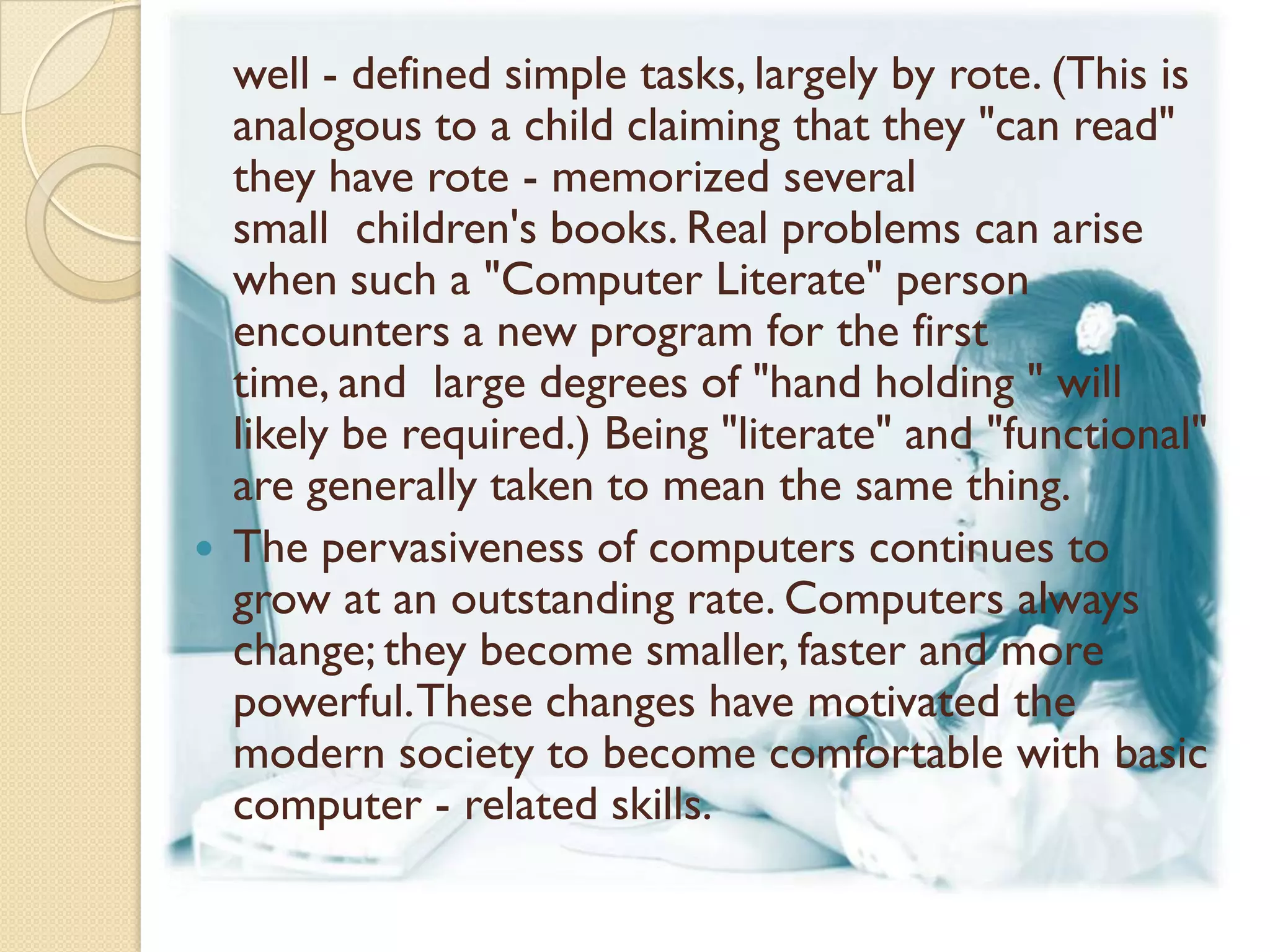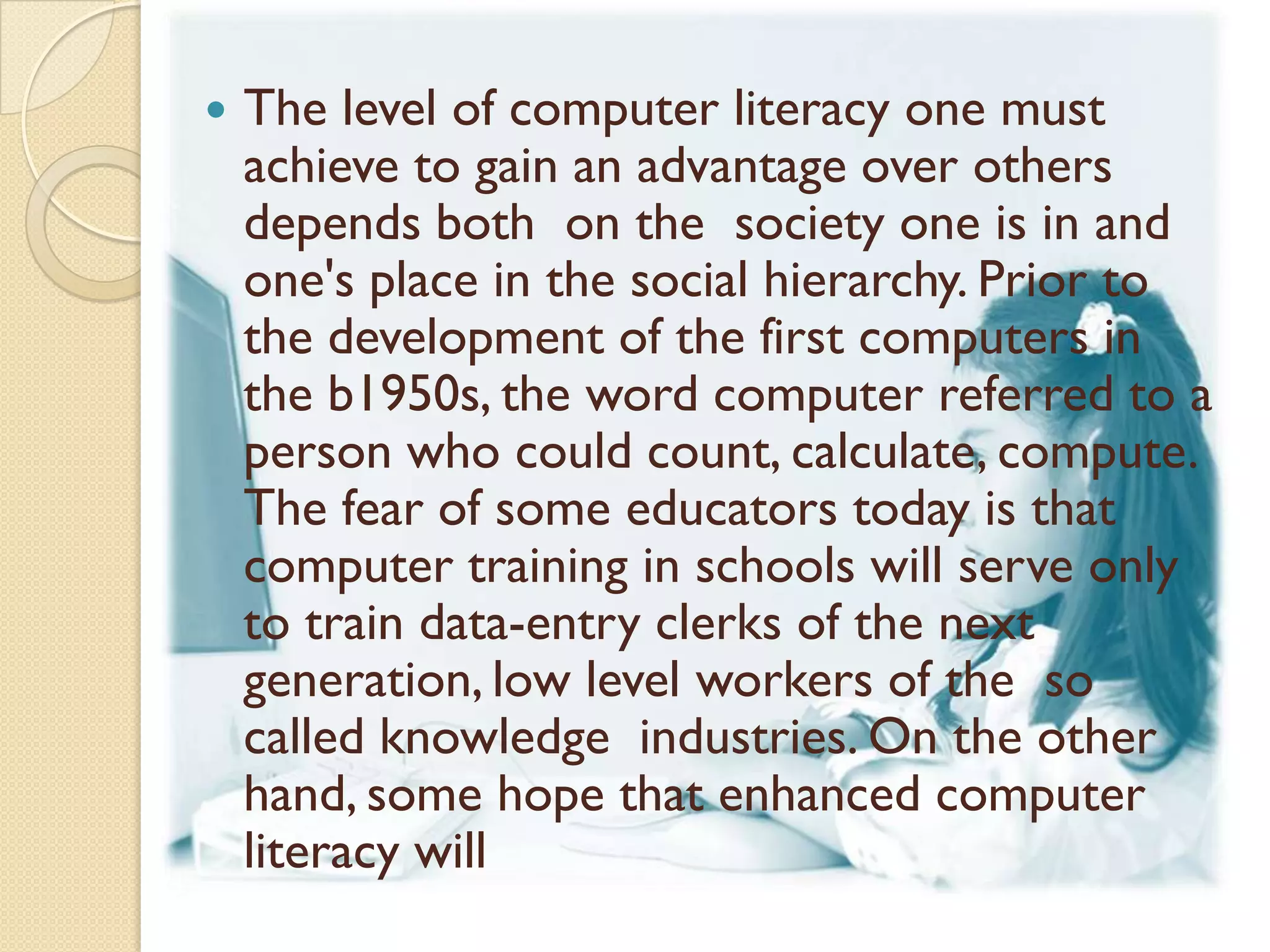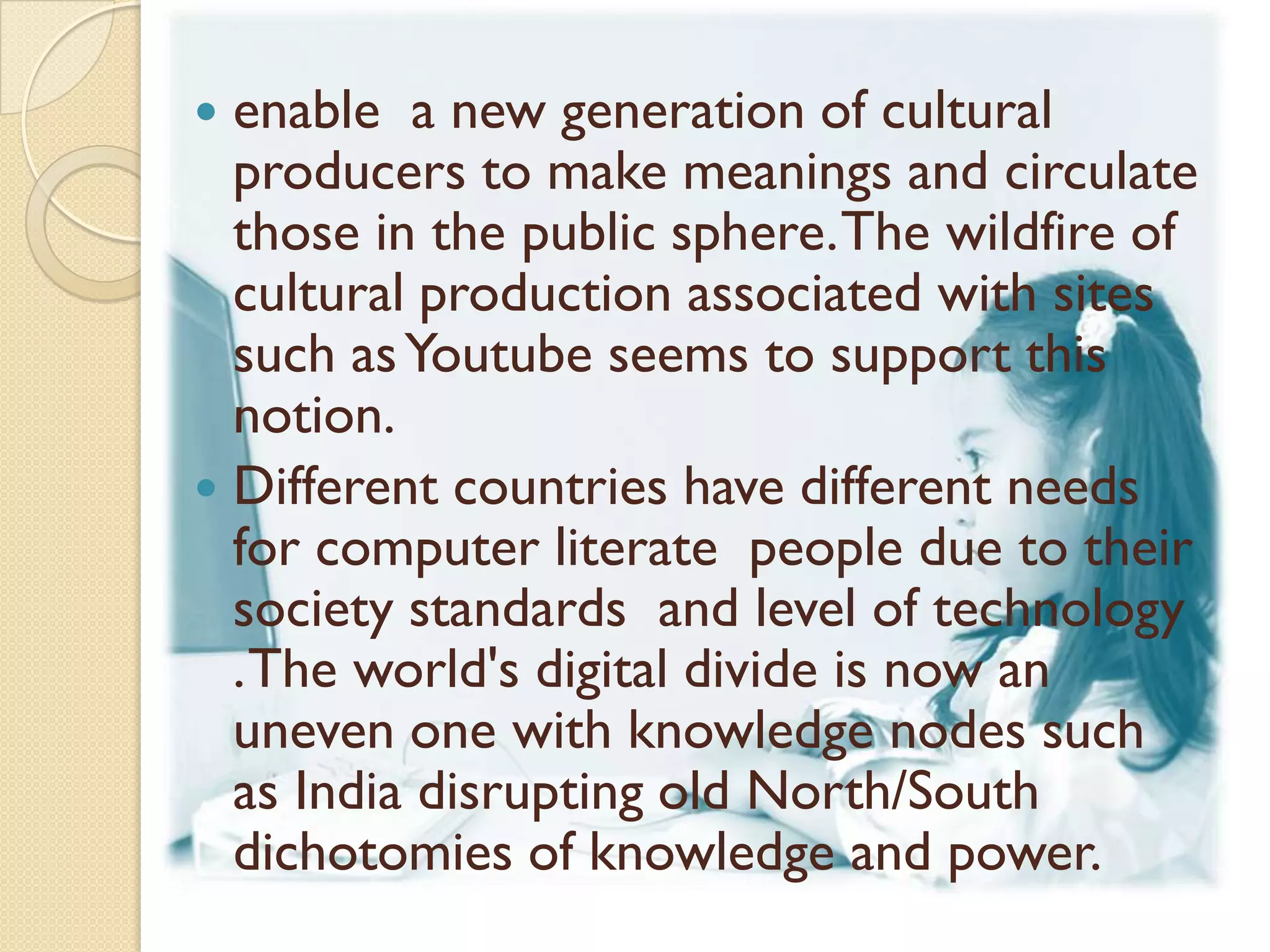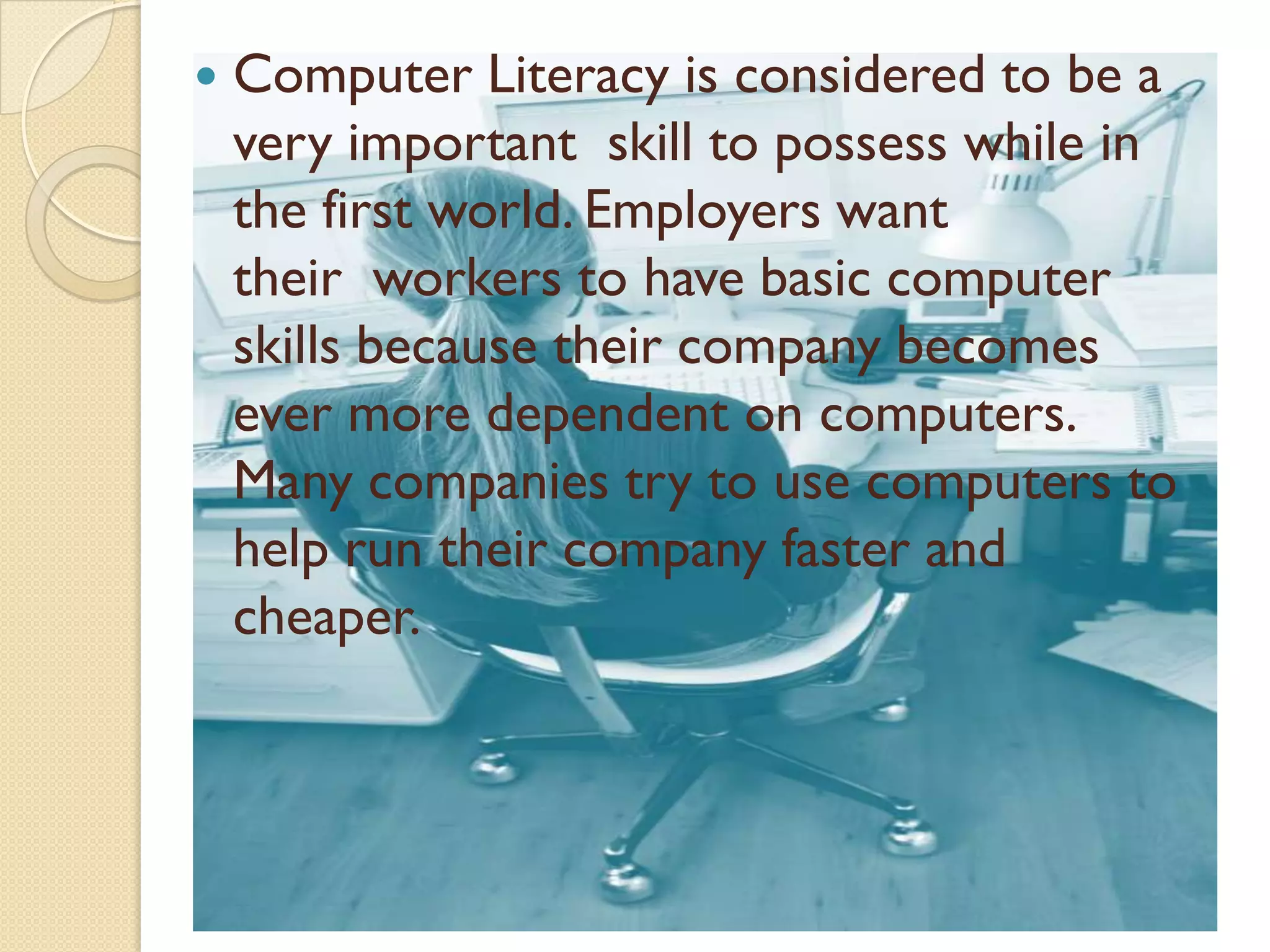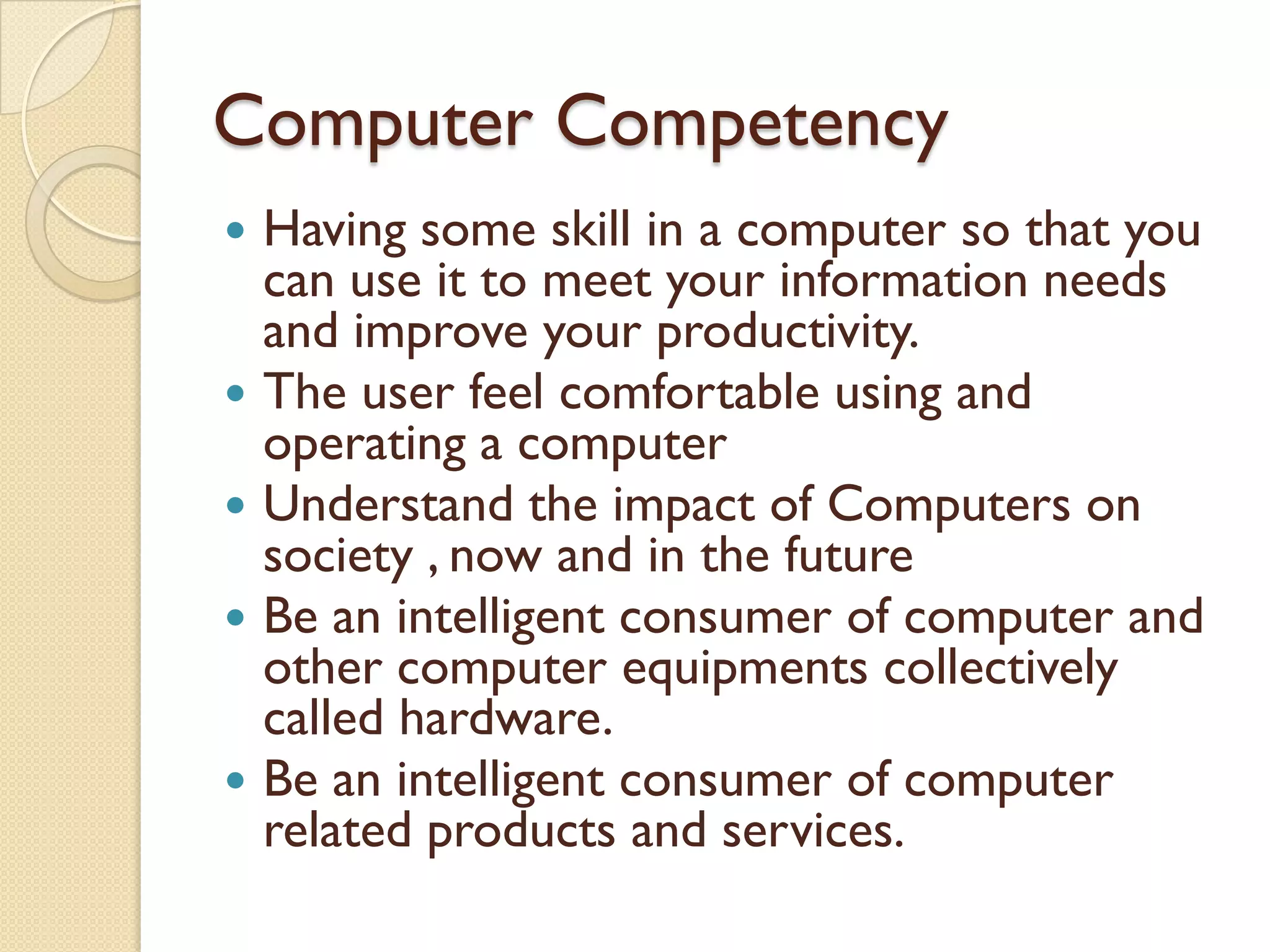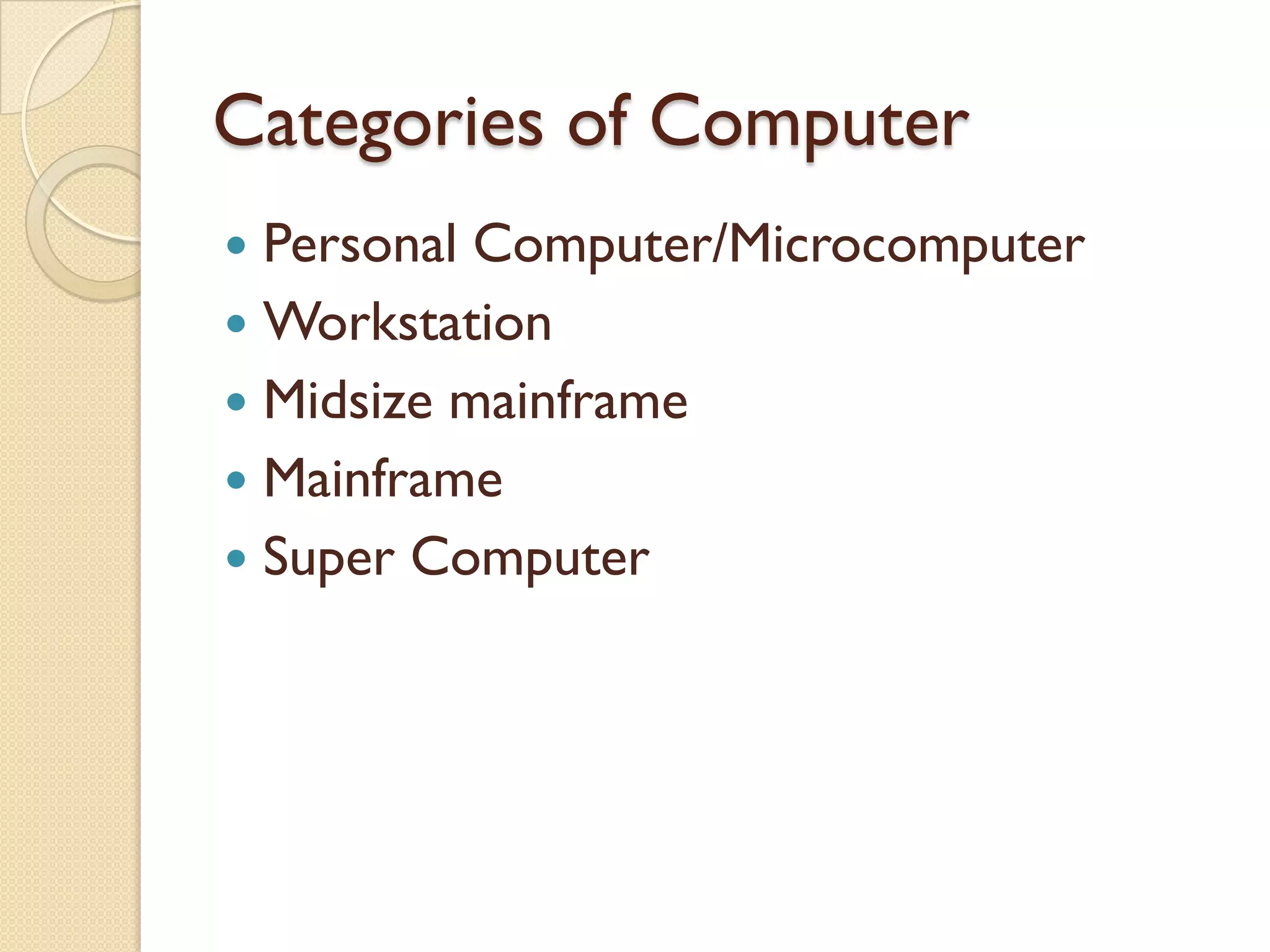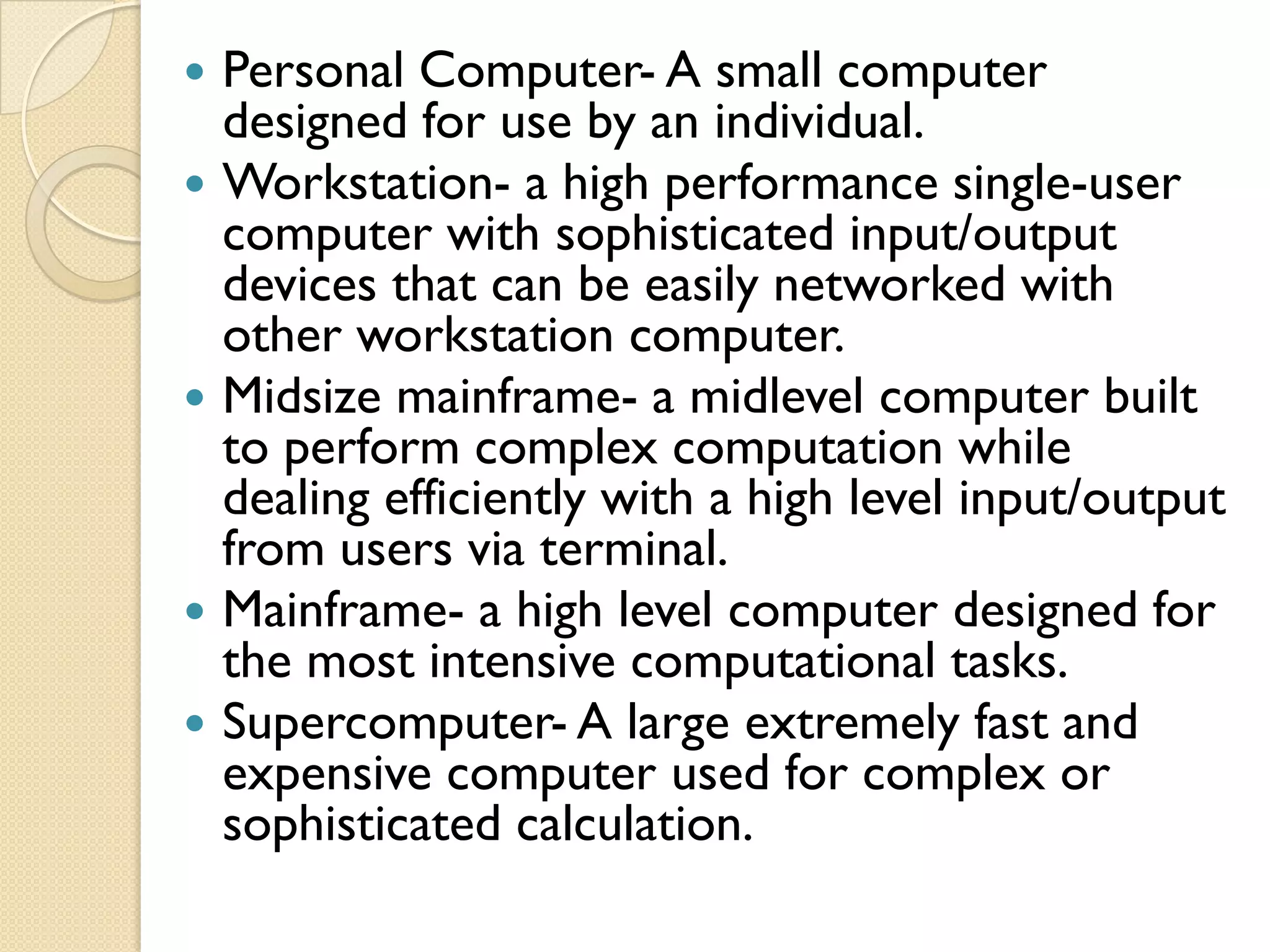The document discusses the importance of computer literacy. It defines computer literacy as having an understanding of computer concepts and the ability to use computers efficiently. It states that computer literacy is an important skill in today's world as computers are ubiquitous and society has become dependent on technology. Employers seek candidates with basic computer skills, and computer literacy is often taught in schools.
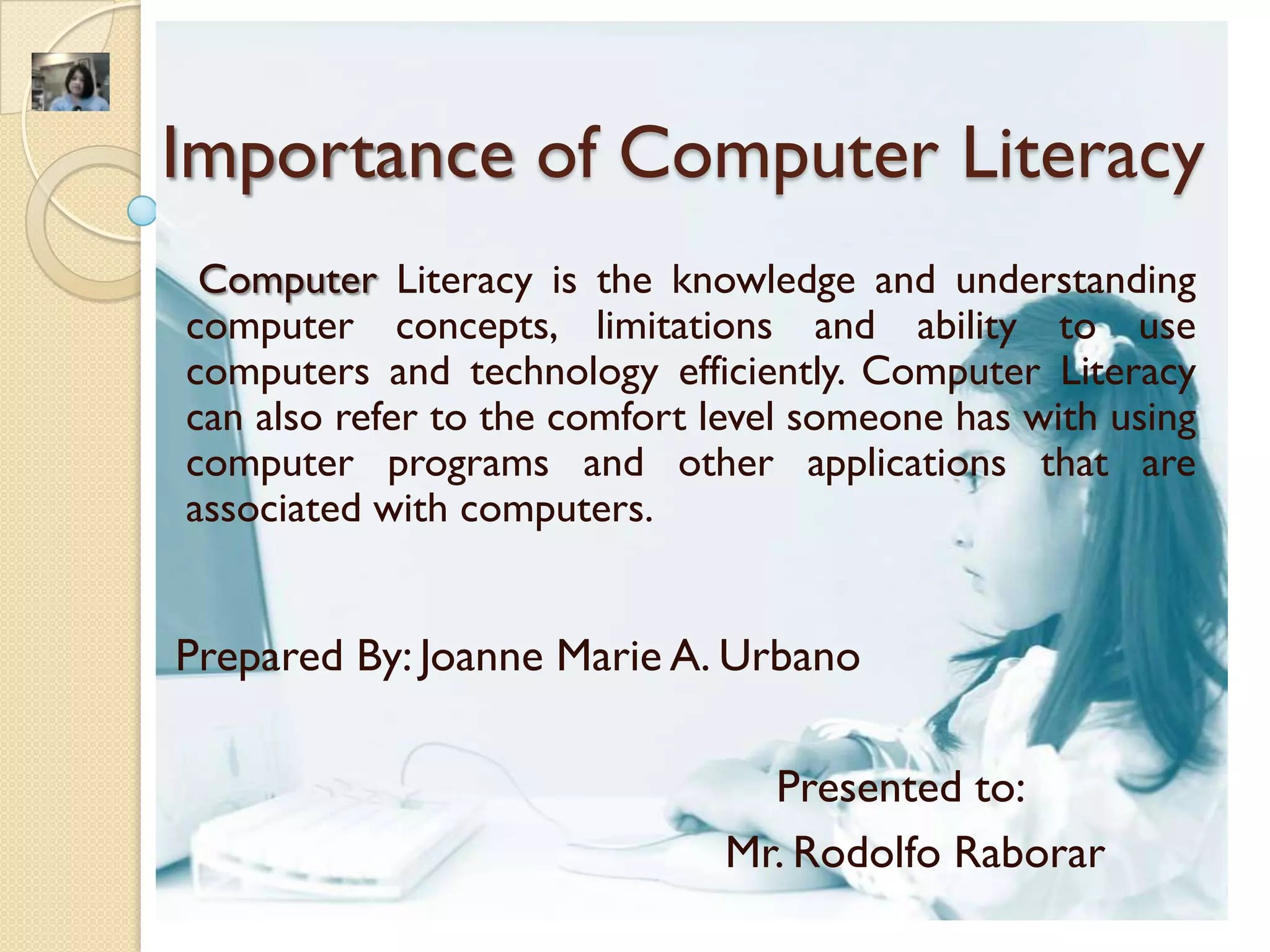
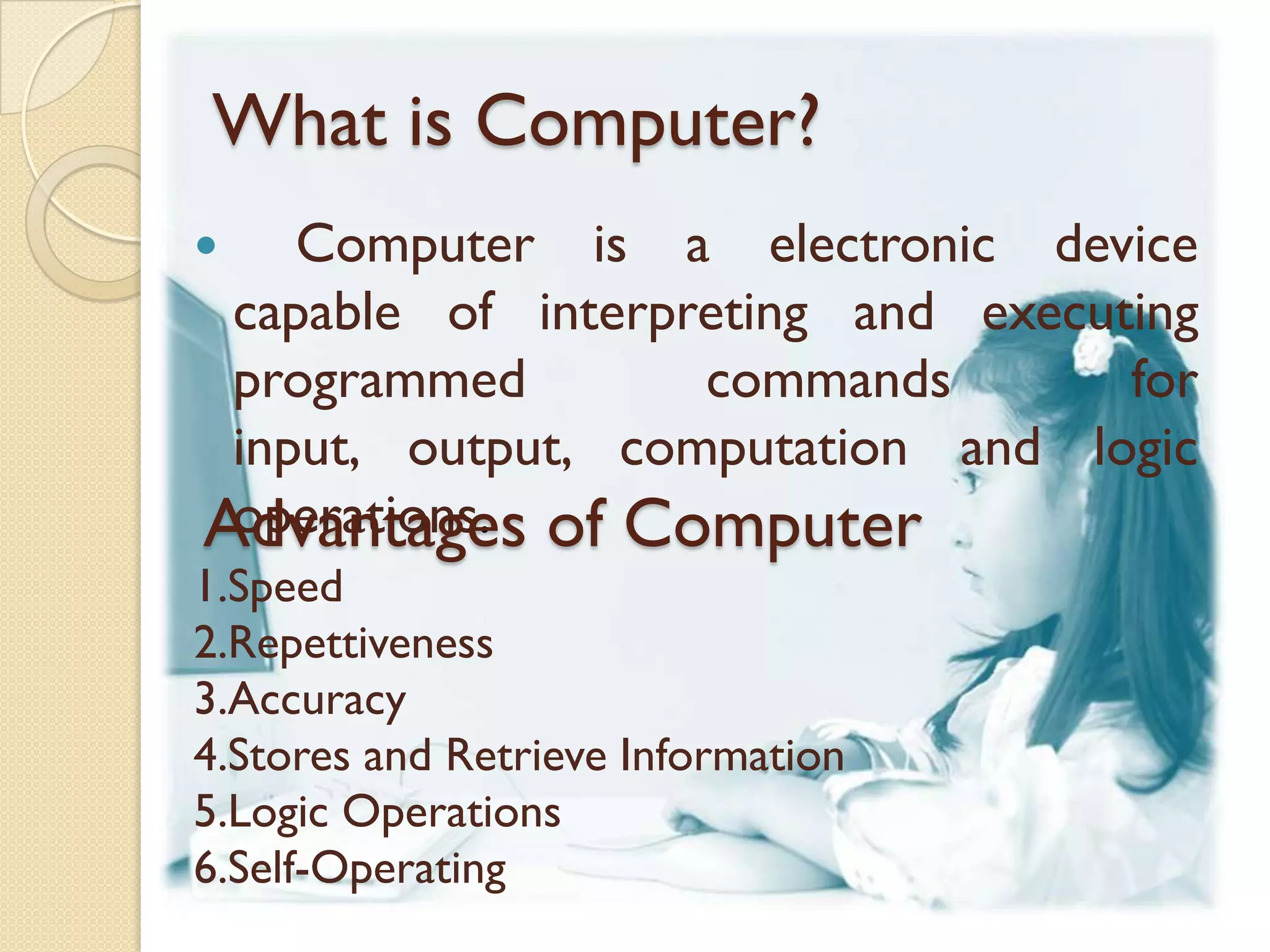
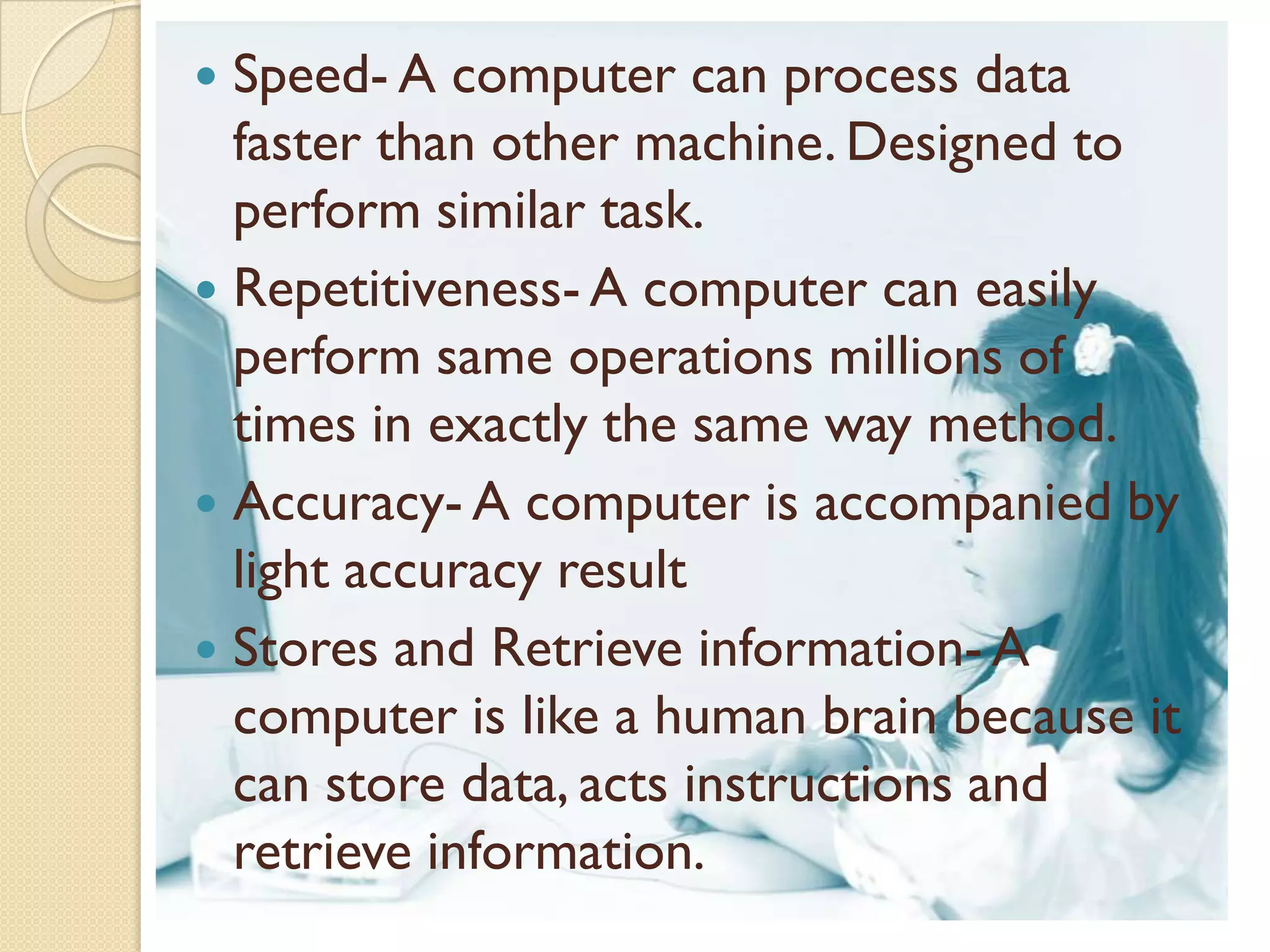
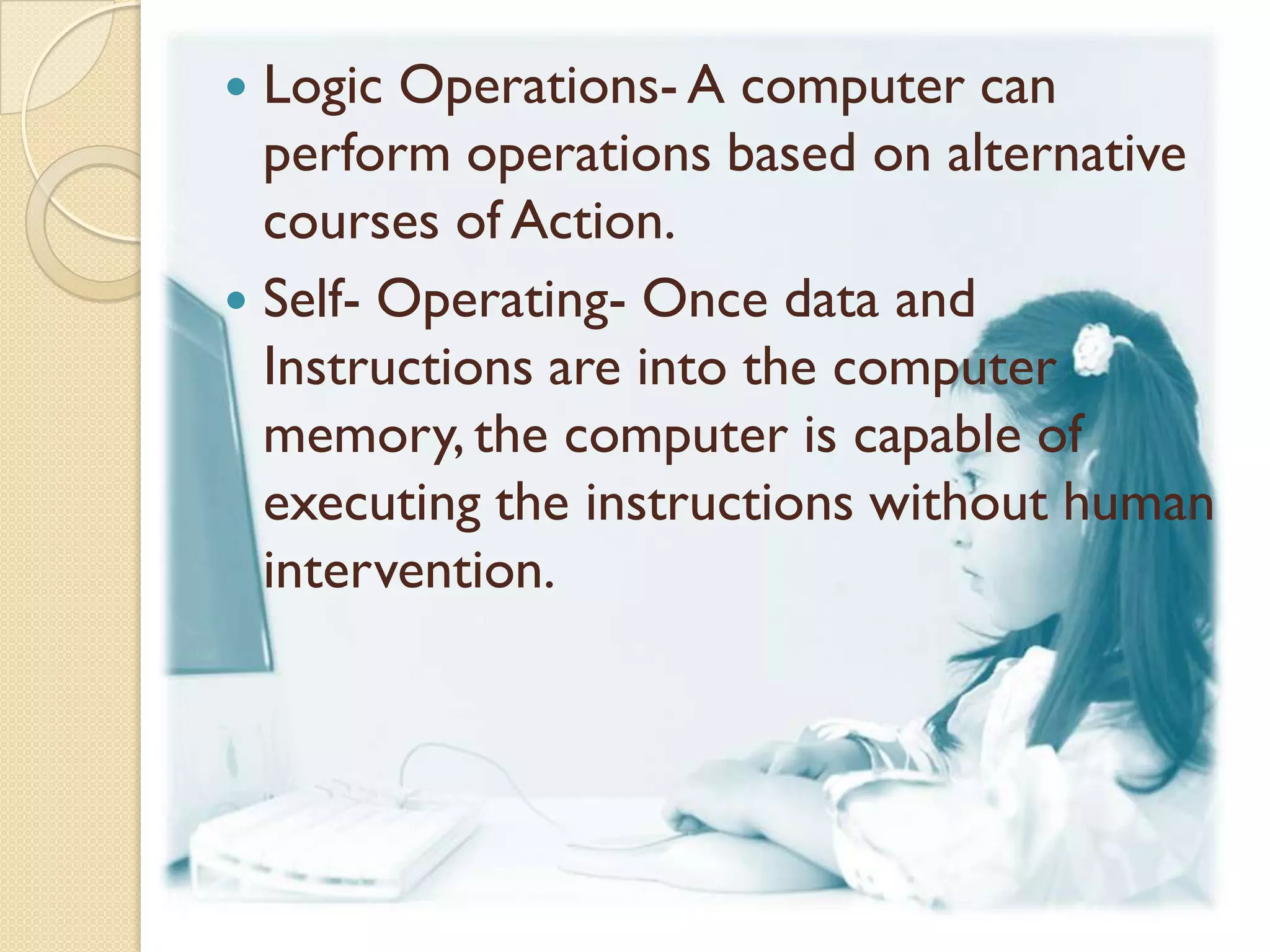
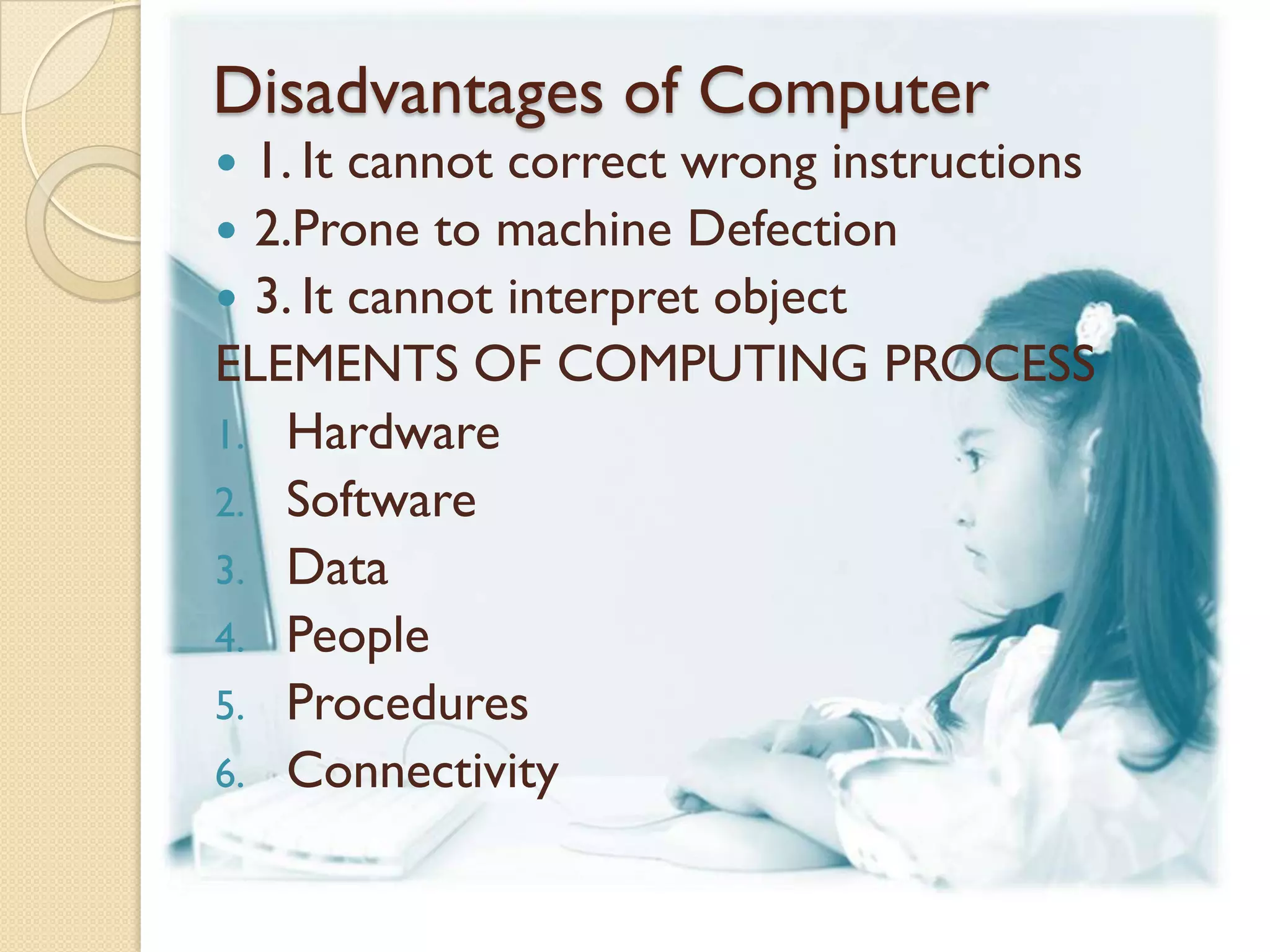
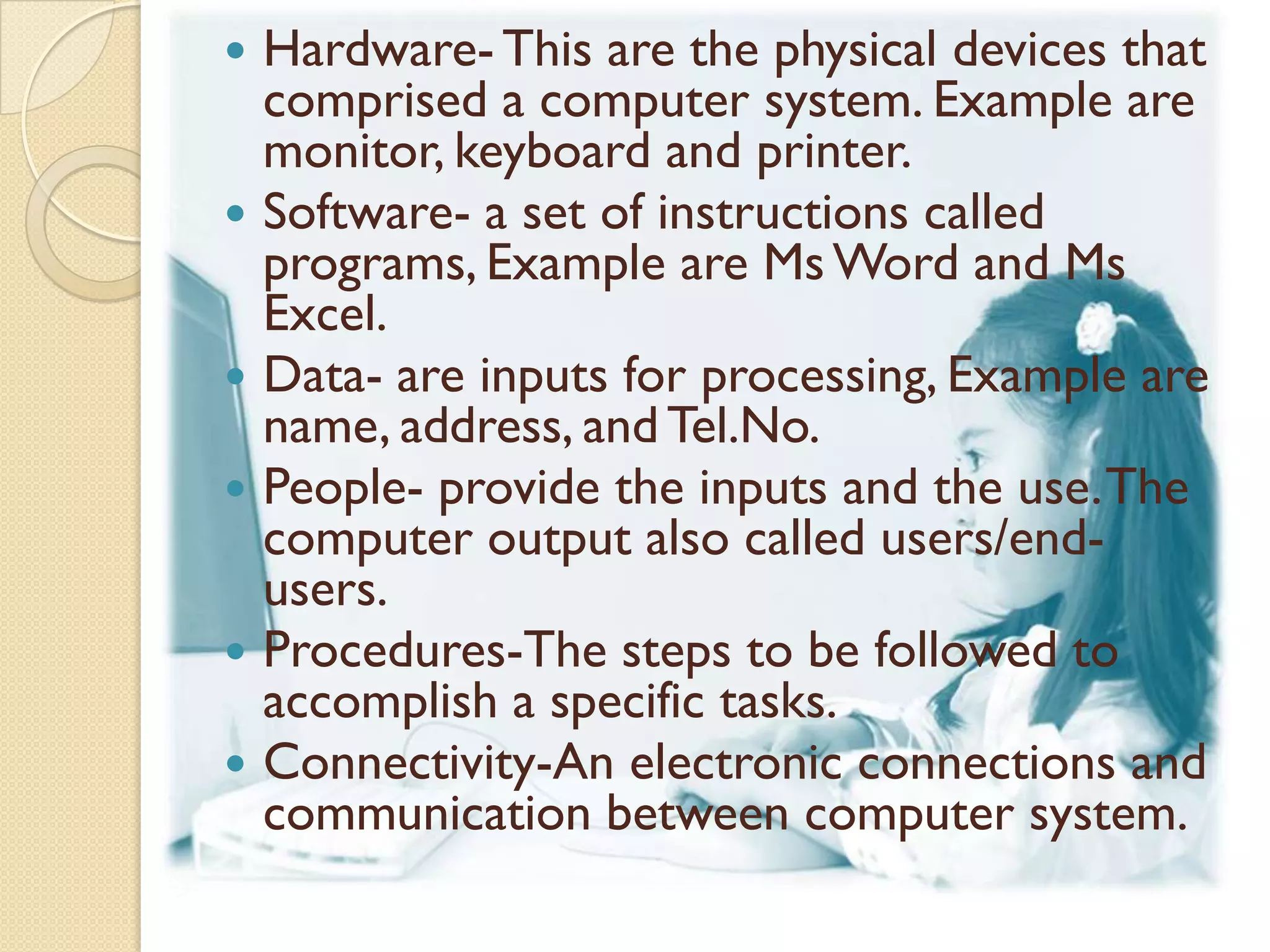
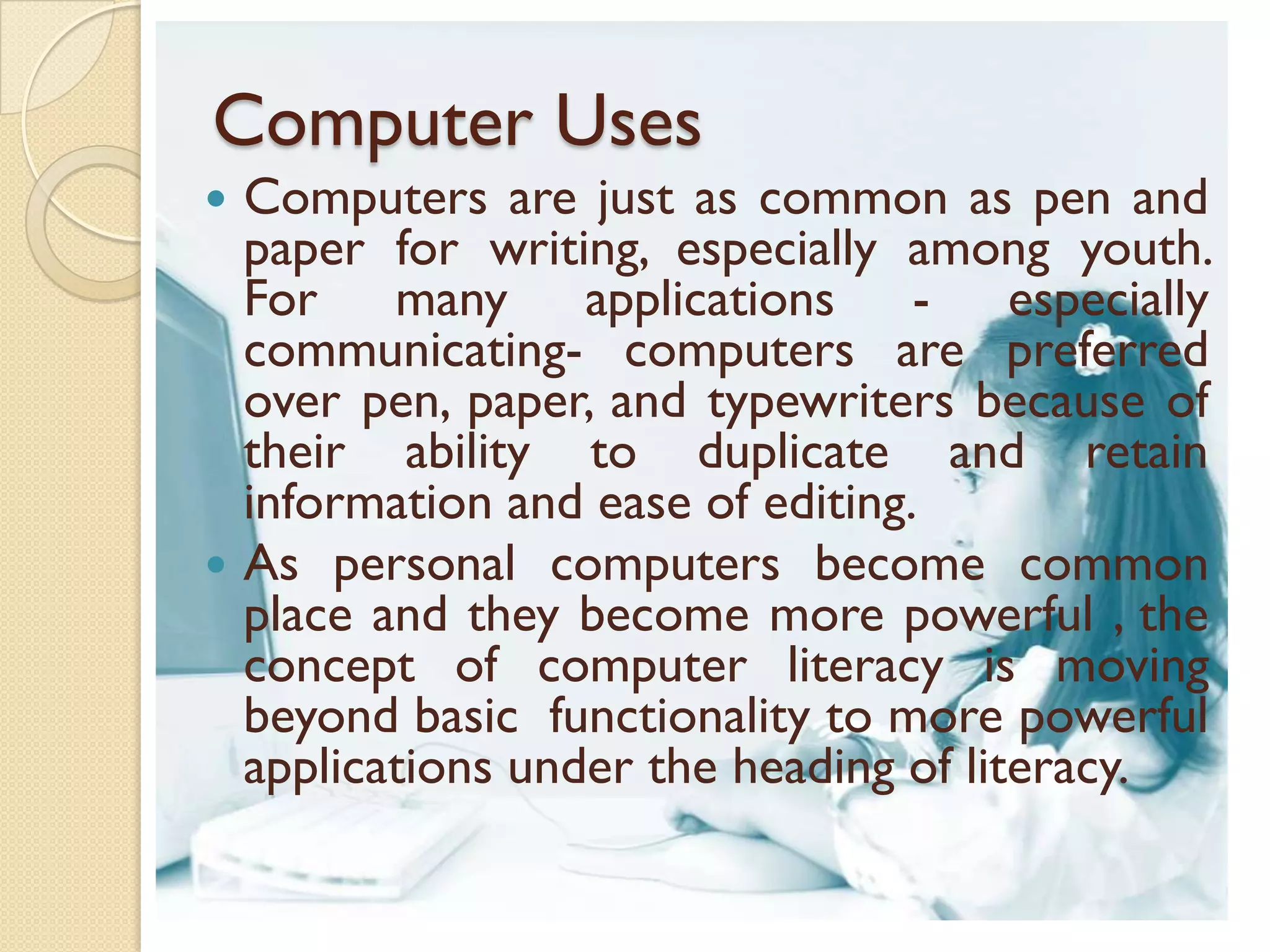
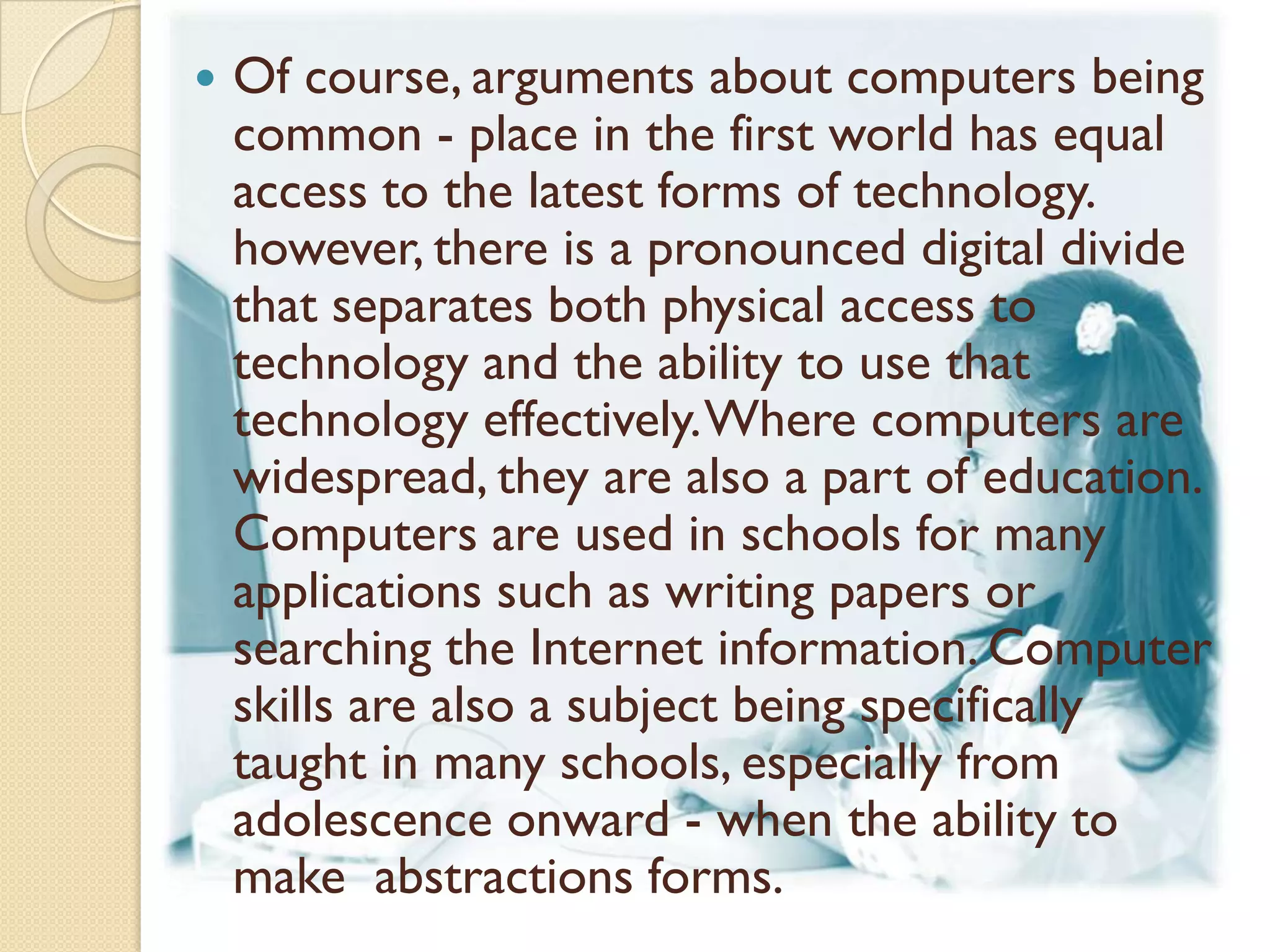
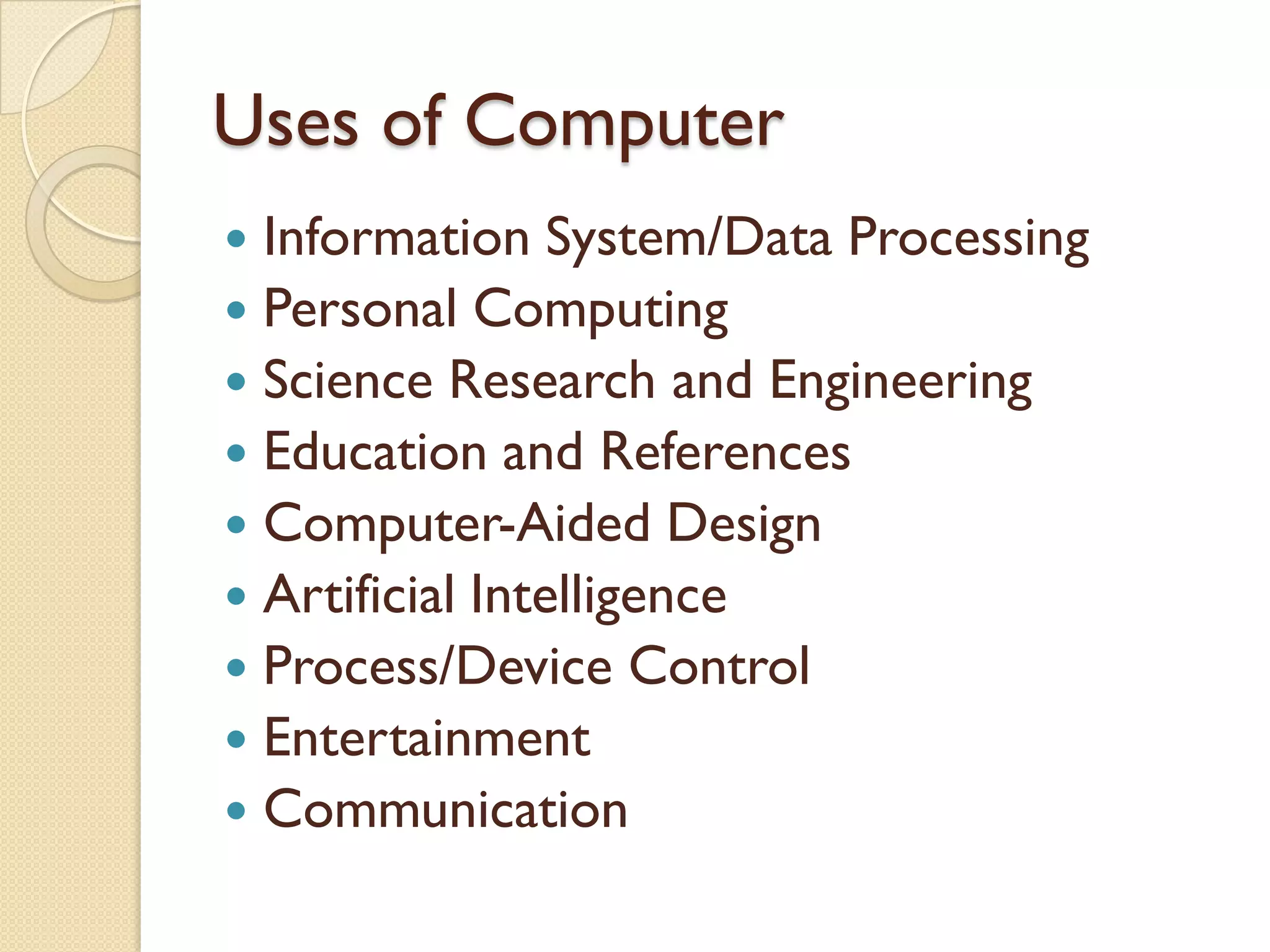
![Importance of Computer Literacy
The precise definition of "computer literacy" can
very from group to group. Generally, literate (in
the realm of books) connotes one who can read
any arbitrary book in their native language
[s], looking up new words as they are exposed to
them. Likewise, an experienced computer
professional may consider the ability to self - tech
(i.e. to learn arbitrary new programs or tasks as
they are encountered) to be central to computer
literacy. In common discourse, however,"
computer literacy" often connotes little more
than the ability to use several very specific
applications (usually Microsoft word, Microsoft
Internet Explorer, and Microsoft Outlook) for
certain very](https://image.slidesharecdn.com/importanceofcomputerliteracy-130131080244-phpapp01/75/Importance-of-computer-literacy-10-2048.jpg)
